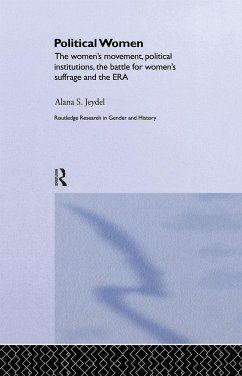Under what conditions are political elites responsive to social movements, and when do social movements gain access to political elites? This book explores this question with regard to the women's movement in the US, asking under what conditions are Congress and the presidency responsive to the women's movement, and when will the women's movement gain access to Congress and the presidency? The book systematically compares the relation between political leaders and each of the three waves of the women's movement, 1848-1889, 1890-1928, and 1960-1985, in light of the political dynamics that each wave faced. The author utilizes perspectives and methods from the fields of Political Science, Sociology, and History to illustrate the ways in which changing political dynamics impacted the battle for both women's suffrage and the Equal Rights Amendment. The book clearly demonstrates the importance of a dynamic institutional analysis of social movement-political elite relations. The author argues that without such an analysis we cannot fully understand the conditions under which legislation of interest to movements will be lobbied for by presidents, introduced into Congress, granted hearings, receive favorable reports, and be reported to the floors of the House and Senate. A significant addition to the study of women's history and American studies, Political Women illustrates the important roles that political leaders played in the battle for women's suffrage and the ERA and demonstrates the political savvy among women suffrage activists who recognized the institutional barriers present in the US political system and fought to overcome them.








